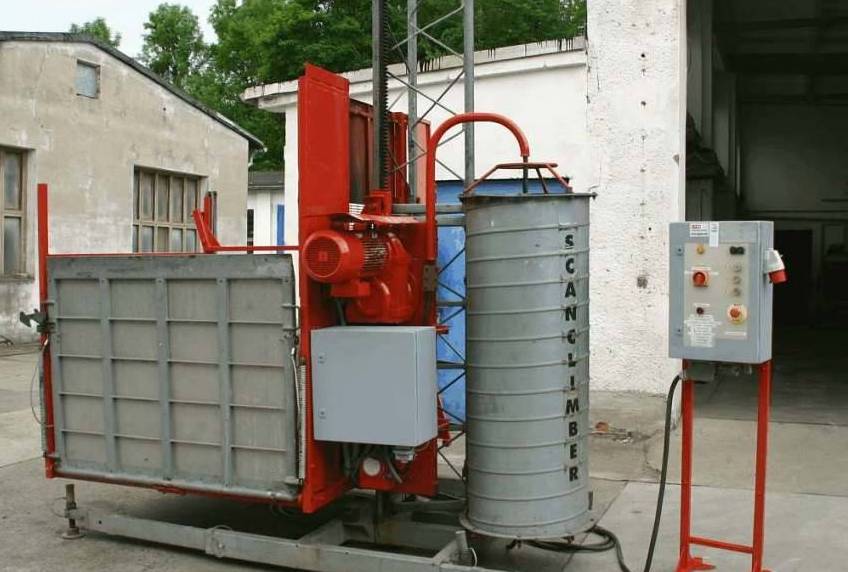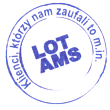Freight lift operator course

Training at our company prepares participants for employment as a goods lift operator. With qualifications in not only operation but also maintenance, you will be more employable where goods lifts are used. You will gain knowledge in the operation and maintenance of stationary, mobile and portable goods lifts and ship lifts.
Training program
The class will cover topics such as:
- construction and individual freight lift systems,
- responsibilities of the freight lift operator,
- legislation,
- safety when carrying out the work,
- operation and use of commodity extracts,
- practical activities.
Receipt of entitlements
After passing the exam, each participant will receive a qualification certificate entitling them to operate handling equipment. Such a certificate is issued by the Office of Technical Inspection and is valid for 10 years.
Advantages of training
Training courses in our company are provided by specialised staff. The aim of the courses is to prepare participants for the state examination confirming their qualifications. Training courses include both a theoretical and practical part. This enables participants to better and more effectively assimilate the knowledge imparted. We train trainees to obtain a certificate as a goods hoist operator. This qualification enables participants to operate stationary, mobile or mobile goods hoists. Upon completion of the course, participants can take a state examination. This is conducted by a commission appointed by the UDT. If the exam is passed, participants receive a personal certificate issued by the office.
Who can attend the course and how do I enrol?
A person who meets the following conditions may take the course:
- is over 18 years old,
- has a minimum of primary education,
- holds a category B driving licence.
To sign up for training, please contact us.
Characteristics of freight lifts
A freight elevator is a platform that is moved along a mast. In its appearance or design, it resembles a ladder. With goods hoists, we can transport building materials to higher levels. We can distinguish between linear and chain goods hoists.
Conditions for the operation of goods lifts

All goods lifts are equipment that is subject to technical supervision. Handling equipment with a load capacity of 250kg or less, except for those used to move people, is subject to simplified technical supervision. It is not necessary to notify these devices to the Technical Inspection Authority and to have them tested. However, it is necessary to ensure that they are maintained and operated by suitably qualified persons who have entitlements. Technical equipment subject to technical supervision must be operated in accordance with the instructions and used as intended.
Rules to be observed
The operator should provide the appliance with stationary operating instructions. This is based on the operating instructions for the appliance and should be available to the person operating the appliance. The operator should also ensure that the appliance is properly maintained so that it can be used safely. Maintenance inspections must be carried out at least within the timeframe specified in the Decree of the Minister of Entrepreneurship and Technology of 30 October 2018. If the manufacturer of the equipment has specified a different deadline for such inspections, it must be complied with.
Each piece of equipment should have a maintenance logbook in which repairs carried out should be recorded.
IMPORTANT! When dealing with brand new equipment, a registration exercise is required. In other cases, only an acceptance test is carried out. When the test result is positive, the inspector of the Office of Technical Inspection issues a test report and a decision authorising the use of the device. After such a test, the user will receive an inspection booklet by post together with a bill for the test performed. The costs of the examination include a possible trip to the device by the inspector. Once the above-mentioned stages have been passed, the appliance will be registered in the records of the relevant branch of the Office of Technical Inspection.
Types of tests that are necessary during operation

The appliance under test should be technically sound. It must also be assembled and prepared in accordance with the conditions laid down in the regulation and the instructions for use. The operator is obliged to ensure safe conditions for carrying out the test, should prepare the place for it, as well as the necessary instruments and loads. He should also ensure that a maintenance person and an operator are present - these should be people with the appropriate qualifications. The tests are carried out at the user's premises. During the test, the operator or his authorised representative must be present. In the event of, for example, inadequate conditions for carrying out the tests, the inspector may refuse to carry out the tests.
| What tests do technical equipment undergo during its operation? |
| Ad hoc follow-up surveys. Ad hoc in-service testing. Ad hoc post-accident or post-failure investigations. |
Our offer
Take a look at what our company has to offer! We organise training Health and Safety and PPE, as well as specialised courses for the operator and maintenance of UDT equipment such as forklifts, mobile platforms, cranes and telehandlers.
Amongst other things, we also offer a professional UDT machine service, maintenance, modernisation, sales of new and used equipment and the possibility of renting a forklift or scissor lift.




























